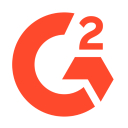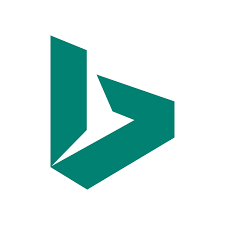
How We Pivoted From A Corporate Social Networking To A $2.4M/Year CRM SaaS Business
Hello! Who are you and what business did you start?
My name is Sunny Paris and I am the co-founder of noCRM.io My LinkedIn headline says “You don't like CRM? You'll love noCRM.“ and I stand by it. We’re a French SaaS company based in Paris with over 11,000 salespeople using our software worldwide. noCRM.io is a completely awesome remote company launched in 2014, today we are 19 employees strong in 9 different locations spread across 5 different time zones.
noCRM.io is a Lead Management Software. Our goal is to help salespeople be better at selling instead of wasting their valuable time entering data. That’s how we differentiate from a traditional CRM. I personally believe CRM software is boring, they slow down salespeople and are used mostly for reporting purposes. Because noCRM.io is sales process-driven, it does the same tasks at fraction of a cost and takes less time.
When I co-founded noCRM.io in 2014, it was completely bootstrapped and today we’ve managed to build it up to $2.4M in annual recurring revenue and $200K in average monthly revenue. It’s been one hell of a journey so far with much more to achieve and discover.

What's your backstory and how did you come up with the idea?
As far as I can remember I have always been entrepreneurial. It’s a feeling a lot of us entrepreneurs share.
When you’re running a company, there are so many opportunities and you are bound to miss some of them.
Before co-founding noCRM.io, I launched a couple of other companies as well. After completing my Ph.D. in Theoretical Physics, I co-founded Weborama in 1998, it survived the internet bubble and later in 2006 got listed on the French stock market. Soon after Weborama, I founded Yoolink in 2008, a corporate social networking site, before I finally pivoted to noCRM.io in 2014. It has indeed been a great run for me as an entrepreneur, especially with noCRM.io still going strong even after 7 odd years.
The idea to enter the hyper-competitive CRM space came from Yoolink. I believe we were ahead of our time with Yoolink, the corporate social network was a small market, not many people understood it back then and we soon realized why not revamp Yoolink and make a product for salespeople. The CRM market was competitive even then, but I felt there was a dearth of good solutions. During my stint with Yoolink, I was myself using CRM software to store and enter prospect data. But there wasn’t much I could do with it and soon realized there was no point just entering this data without any follow-up.
I really wanted to bring something new to the CRM space; even though it's a big market people are still searching for software that helps them close more deals. That’s what made me go ahead with it.
Take us through the process of designing, prototyping, and manufacturing your first product.
How did Yoolink help us shape noCRM’s first design and prototype? Yoolink has a “Writeboard” feature that basically works as a form; you have a title for the board, the message you want to add to the title, the tags that you want to associate with the post and you could also comment on the post.
This became our very first feature for noCRM.io. The title was the name of the lead or account, the message became a conversation with that lead and tags became filters. We were clear that we did not want our first design to be like the rest of the CRMs out there. To the form we added “Status loops”, they are nothing but to-dos and reminders for our users to follow-up with leads they added into noCRM.io
We were lucky, Yoollink catapulted us into making noCRM.io. We were very fast between the idea and the product as we used Yoolink as the basis. It took us less than 2 months to have a free version and then 3 months to start billing. We used probably 80k€ to get a product and 500k€ to break even.

Describe the process of launching the business.
It started with a basic landing page with some simple relevant text regarding CRM and lead management. We placed a lead-gen form on our landing page and requested visitors to subscribe to us if they would want a cool and simple CRM alternative. We bought some keywords to boost the landing page we had created. To our surprise, we had a 16% conversion rate on our landing page, which meant 1 in 6 visitors wanted to try our product or hear from us. This was great news.
We had our product ready in 60 days, and we reached out to all those who had subscribed to the landing page. About 100 odd people had subscribed to the landing page, and our surprise noCRM’s first impressions were great, customers loved it and this made us happy.
Soon after, I knew we had to scale-up. noCRM.io was rapidly launched in 5 different languages; English, French, Spanish, Italian, Portuguese. I knew we were a small business in a competitive space, in such a situation you need to identify priority markets to launch your business. We launched noCRM in North America, France, United Kingdom, Spain, Italy, and LATAM. We relied mostly on SEO, AdWords, continuous press releases. This worked for us as we got 20 leads per day when we started. This was really a positive sign for me.
Since launch, what has worked to attract and retain customers?
What has helped attract our customers? Our name and philosophy I’d say. The name noCRM.io is quite a head-turner and conversation starter. We go by what we say and we deliver. We rely on outbound and inbound marketing as well to attract customers.
Our customer success team is the answer to our retention strategy. Our support is prompt and always available to answer any questions our customers might have. Our customers are really happy and this is satisfying as a Co-founder and CEO.

How are you doing today and what does the future look like?
Things are looking quite good for us today. We are a profitable company, even though the pandemic has affected our business globally. That’s one advantage of being a SaaS company; the costs are relatively low and we have control over our expenses, this has certainly helped us in these difficult times.
Like I mentioned we have over 11,000 sales reps globally and do $2.4M in ARR. Most of our customers are small and medium-sized businesses with sales teams of 5-20 salespeople. We have 3 editions; Starter Kit Edition, Sales Expert Edition, and the latest Dream Team Edition all starting at different price points according to business needs. You can find the pricing for each and the features that come with it here.
Through starting the business, have you learned anything particularly helpful or advantageous?
When you’re running a company, there are so many opportunities and you are bound to miss some of them. I wouldn’t say I got blindsided by things either. My approach is focused on what my company stands for. If it agrees with the philosophy of noCRM, sure I’d give things a try and I’ve done so too.
The best decision I've made, which was a tricky one indeed, was the pricing of noCRM.io. I really feel noCRM is priced so that it's not very expensive nor too cheap for customers to not try. We got this right, and it has shown. I’m very proud of it.
What platform/tools do you use for your business?
I may sound partial here, but my favorite business tool is my very own Yoolink. Obviously, it's not on the market up for sale, but we use it as our internal corporate social network at noCRM.io. It’s been hugely productive for us. I’ll give you an example, since we’re a remote company, the everyday morning we all post our 3 goals of the day, like this we all know what each one of us is doing.
We can tag each other if we need help on a particular task, collaborate easily, and have fun. The tool certainly helps us see the human behind being a remote company and that’s why I’d say it's been my favorite business tool.
What have been the most influential books, podcasts, or other resources?
I’d definitely recommend reading Predictable Revenue by Aaron Ross and Marylou Tyler. It talks about how you can generate revenue that is predictable, repeatable, and scalable. Worth a shot if you’re looking to develop such a system.
Advice for other entrepreneurs who want to get started or are just starting?
Peter Thiel, the co-founder of PayPal says, “competition is for losers”. I say, even if it's for losers, you lose well. If you believe in your product, have a market fit, go ahead build your company, grow at your own rate, and don’t look at the exceptions.
Entrepreneurs usually look at exceptions like Facebook, Google, Amazon, etc, and try to emulate them. You can have a perfectly happy life and growing company if you ignore the exception, belief in your company, and create a niche for yourself.
Are you looking to hire for certain positions right now?
noCRM.io is a growing company, unfortunately, we do not have any current open positions now. Do feel free to check out our website, we are always looking for talented people to join our team.
Where can we go to learn more?
- Website
- Blog
- YouTube
- Sales Script Generator
- Ebook - How to build a killer sales team

Download the report and join our email newsletter packed with business ideas and money-making opportunities, backed by real-life case studies.

Download the report and join our email newsletter packed with business ideas and money-making opportunities, backed by real-life case studies.

Download the report and join our email newsletter packed with business ideas and money-making opportunities, backed by real-life case studies.

Download the report and join our email newsletter packed with business ideas and money-making opportunities, backed by real-life case studies.

Download the report and join our email newsletter packed with business ideas and money-making opportunities, backed by real-life case studies.

Download the report and join our email newsletter packed with business ideas and money-making opportunities, backed by real-life case studies.

Download the report and join our email newsletter packed with business ideas and money-making opportunities, backed by real-life case studies.

Download the report and join our email newsletter packed with business ideas and money-making opportunities, backed by real-life case studies.




































